MS-LS2-1
Analyze and interpret data to provide evidence for the effects of resource availability on organisms and populations of organisms in an ecosystem.
-
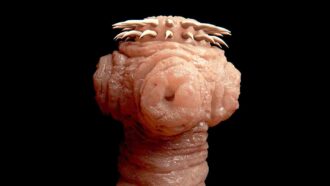 Health & Medicine
Health & MedicineHow wriggling, blood-eating parasitic worms alter the body
Parasitic worms eat blood and make people sick, but they may also help prevent or treat some diseases.
-
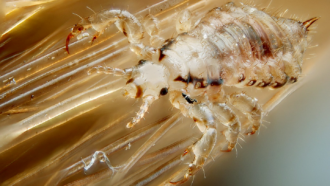 Animals
AnimalsSome ecologists value parasites — and now want a plan to save them
Parasites get a bad rap as disease-causing, unwelcome guests on other organisms. But parasites are also imperiled, and scientists don’t want to lose them.
-
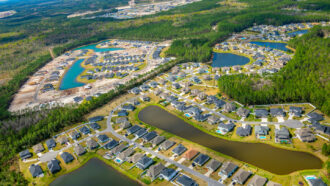 Environment
EnvironmentPonds made to control floods can spew climate-warming gases, study finds
Younger stormwater ponds can release more carbon in gases than they absorb, a study finds. That could aggravate global warming.
-
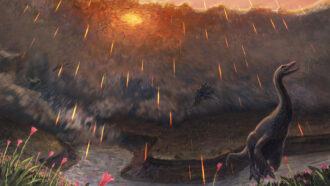 Animals
AnimalsThe end of the dinosaurs appears to have come in springtime
Fish fossils from North Dakota suggest when the Chicxulub asteroid devastated Earth, triggering the mass extinction of dinosaurs and other species.
By Sid Perkins -
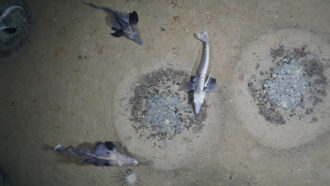 Animals
AnimalsWorld’s biggest colony of nesting fish lives beneath Antarctic ice
Totally unexpected, it’s far, far larger than any other known community of nesting fish — fully one-third larger than the area of Washington, D.C.
By Jake Buehler -
 Environment
EnvironmentRecycling a climate-warming gas could make ‘greener’ farmed fish
Instead of warming the climate, methane gas can be collected to help farmers. Along the way, it may also save some fish.
-
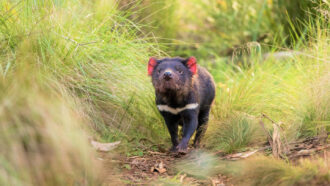 Animals
AnimalsRewilding returns lost species to strengthen ecosystems
Restoring the missing species can help undo human-caused problems by aiding forests, slowing climate change and reducing wildfires.
-
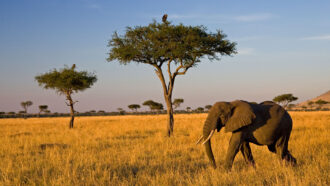 Earth
EarthScientists Say: Savanna
Savannas exist where there is more rainfall than in a desert, but less than in a forest.
-
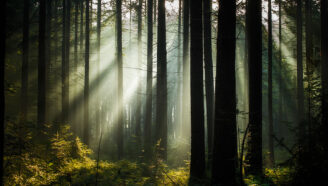 Ecosystems
EcosystemsSecret forest fungi partner with plants — and help the climate
Forest fungi are far more than mere mushrooms. They explore. They move nutrients and messages between plants. They can even help fight climate change.
-
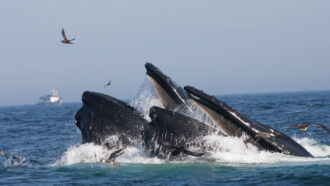 Animals
AnimalsBaleen whales eat — and poop — a lot more than we thought
The amount of food that some whales eat and then poop out suggests these animals have a powerful influence over ocean ecosystems.
-
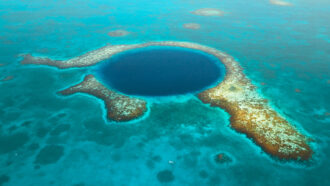
-
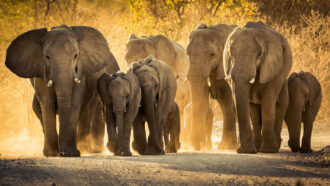 Animals
AnimalsLet’s learn about elephants
Check out five wild facts you may not know about a familiar animal: the elephant.